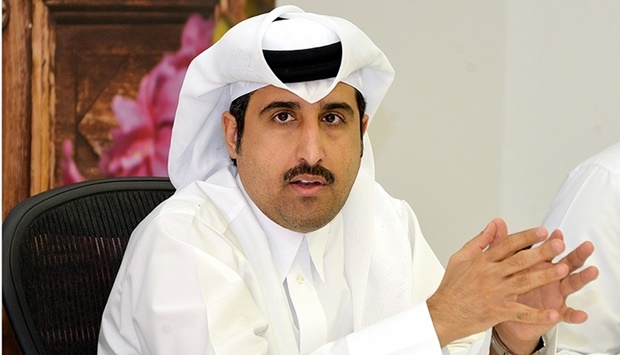Qatar’s small and medium-sized enterprise (SME) sector’s contribution to GDP growth has been steadily increasing, according to Qatar Chamber general manager Saleh bin Hamad al-Sharqi, citing local SMEs’ “remarkable growth in the past few years.”
“Qatar attaches substantial interest to the development of the country’s SMEs to keep pace with the effective economic policies adopted by the State within the framework of Qatar National Vision 2030,” al-Sharqi said in the latest edition of Al Moltaqa, Qatar Chamber’s monthly economic magazine.
Al-Sharqi explained that this approach is also part of a comprehensive vision and well-defined plans to diversify sources of income, and to gradually move from an oil-based economy to a diversified, knowledge-based economy, in which SMEs play a pivotal role.
“To support SMEs, the state sought to provide an appropriate environment for these businesses by enacting laws and legislations, and implementing measures that would stimulate the establishment of such enterprises.
“It also strived to facilitate the establishment of finance procedures for these businesses, while boosting the competitiveness between entrepreneurs and business owners to achieve more quality and efficiency,” al-Sharqi pointed out.
To achieve this goal, al-Sharqi said Qatar Chamber has been working with business owners to encourage them to invest in the SME sector. He said the chamber is also seeking to attract foreign direct investment (FDI) inflow into this sector, especially in businesses that depend on advanced technologies.
“SMEs are the real engines of the modern economy and represent about 95% of the total number of companies worldwide. Therefore, the development of this sector in Qatar will reflect positively on the economy,” he said.
Al-Sharqi added: “As part of Qatar Chamber's interest to support SMEs, it biennially holds its SMEs Conference. Through this conference, the chamber aims to stimulate investments in SMEs and promote the development of these businesses, especially that Qatar provides advanced infrastructure, legislation, and laws that stimulate investments, as well as economic and logistic zones and free zones that offer a myriad of investment opportunities and represent a fertile environment for the growth of SMEs.”
“Qatar attaches substantial interest to the development of the country’s SMEs to keep pace with the effective economic policies adopted by the State within the framework of Qatar National Vision 2030,” al-Sharqi said in the latest edition of Al Moltaqa, Qatar Chamber’s monthly economic magazine.
Al-Sharqi explained that this approach is also part of a comprehensive vision and well-defined plans to diversify sources of income, and to gradually move from an oil-based economy to a diversified, knowledge-based economy, in which SMEs play a pivotal role.
“To support SMEs, the state sought to provide an appropriate environment for these businesses by enacting laws and legislations, and implementing measures that would stimulate the establishment of such enterprises.
“It also strived to facilitate the establishment of finance procedures for these businesses, while boosting the competitiveness between entrepreneurs and business owners to achieve more quality and efficiency,” al-Sharqi pointed out.
To achieve this goal, al-Sharqi said Qatar Chamber has been working with business owners to encourage them to invest in the SME sector. He said the chamber is also seeking to attract foreign direct investment (FDI) inflow into this sector, especially in businesses that depend on advanced technologies.
“SMEs are the real engines of the modern economy and represent about 95% of the total number of companies worldwide. Therefore, the development of this sector in Qatar will reflect positively on the economy,” he said.
Al-Sharqi added: “As part of Qatar Chamber's interest to support SMEs, it biennially holds its SMEs Conference. Through this conference, the chamber aims to stimulate investments in SMEs and promote the development of these businesses, especially that Qatar provides advanced infrastructure, legislation, and laws that stimulate investments, as well as economic and logistic zones and free zones that offer a myriad of investment opportunities and represent a fertile environment for the growth of SMEs.”


